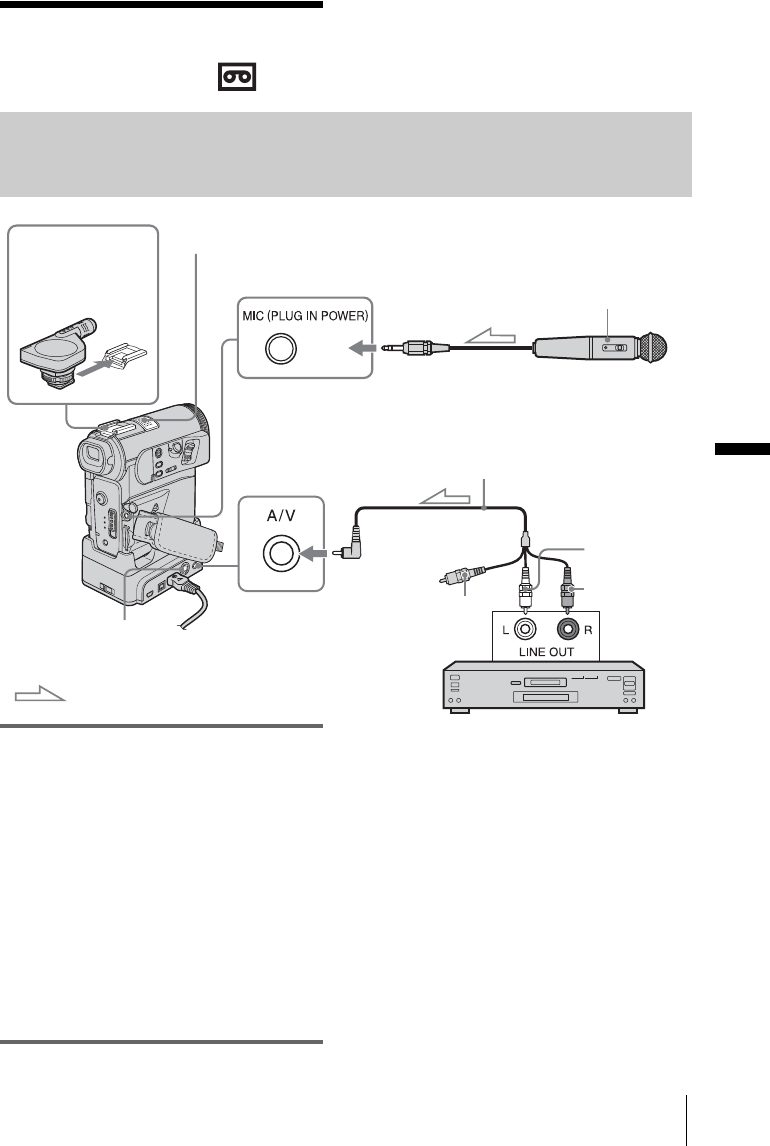
Dubbing/Editing
Dubbing/Editing
105
Dubbing sound to a
recorded tape
You can record additional audio to the
original sound on the tape. You can add
sound to a tape already recorded in the 12-bit
mode without erasing the original sound.
Preparing for audio recording
Record audio in one of the following ways.
• Using the internal microphone (no connection
required).
• Connecting a microphone (optional) to the
MIC jack. (A)
• Connecting a microphone (optional) to the
Intelligent accessory shoe. (B)
• Connecting audio device to the Handycam
Station or your camcorder using an A/V
connecting cable. (C)
The audio input to be recorded takes precedence
over others in the order of MIC jack t
Intelligent accessory shoe t A/V jack t
internal microphone.
b Note
• You cannot record additional audio:
– When the tape is recorded in the 16-bit mode.
– When the tape is recorded in the LP mode.
– When your camcorder is connected via the i.LINK
cable.
– On blank sections of the tape.
– On the tape recorded on another device with a 4ch
microphone (4CH MIC REC)
– When the write-protect tab of the cassette is set to
SAVE.
• When you are using the A/V jack or the internal
microphone to record additional sound, the picture
will not be output from the S VIDEO jack or the
A/V jack. Check the picture on the LCD screen or
the viewfinder.
• When you use an external microphone (optional) to
record additional audio, you can check the picture
and the sound by connecting your camcorder to a TV
AMIC (PLUG IN POWER) jack
Microphone (optional)
A/V connecting cable (supplied)
Intelligent
accessory shoe
B
Internal microphone
Signal flow
CA/V jack
Audio device (such as
CD/MD players)
Do not connect the Video plug (yellow).
Audio output jacks
Audio R (red)
Audio L (white)
S VIDEO jack
,continued
